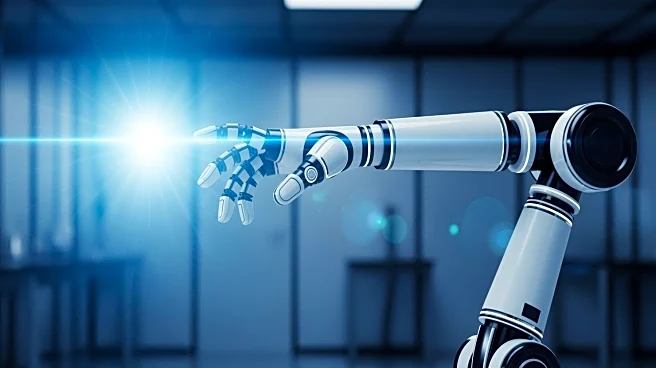What's Happening?
The robotics industry is reflecting on lessons learned from both successful and failed ventures to guide future innovation. Insights from industry leaders emphasize the importance of product market fit,
funding strategies, development processes, team dynamics, and scaling challenges. Successful companies have focused on understanding customer needs, securing funding wisely, and developing sustainable business models. They also highlight the significance of rapid prototyping, structured development processes, and strategic scaling to ensure long-term success.
Why It's Important?
These lessons are crucial for new entrants in the robotics field, offering a roadmap to navigate the complex landscape of technology development and commercialization. Understanding customer needs and securing a beachhead client are pivotal for product success. The insights on funding and development processes can help startups avoid common pitfalls, ensuring efficient use of resources and timely market entry. As robotics continue to play a significant role in various sectors, these strategies can drive innovation and enhance competitiveness in the U.S. tech industry.
What's Next?
Robotics companies may increasingly focus on co-development with clients to refine their products and ensure market readiness. The emphasis on rapid prototyping and customer feedback could lead to more agile development cycles. As companies scale, they might explore automation and multi-sourcing strategies to mitigate risks associated with tariffs and supply chain disruptions. These approaches could shape the future of robotics, influencing how products are developed and brought to market.
Beyond the Headlines
The reflections on robotics successes and failures highlight the broader implications for innovation management and entrepreneurship. They underscore the need for a balanced approach to technology development, where customer-centric strategies are prioritized alongside technical advancements. This perspective could influence how tech companies approach innovation, fostering a culture of continuous learning and adaptation.










